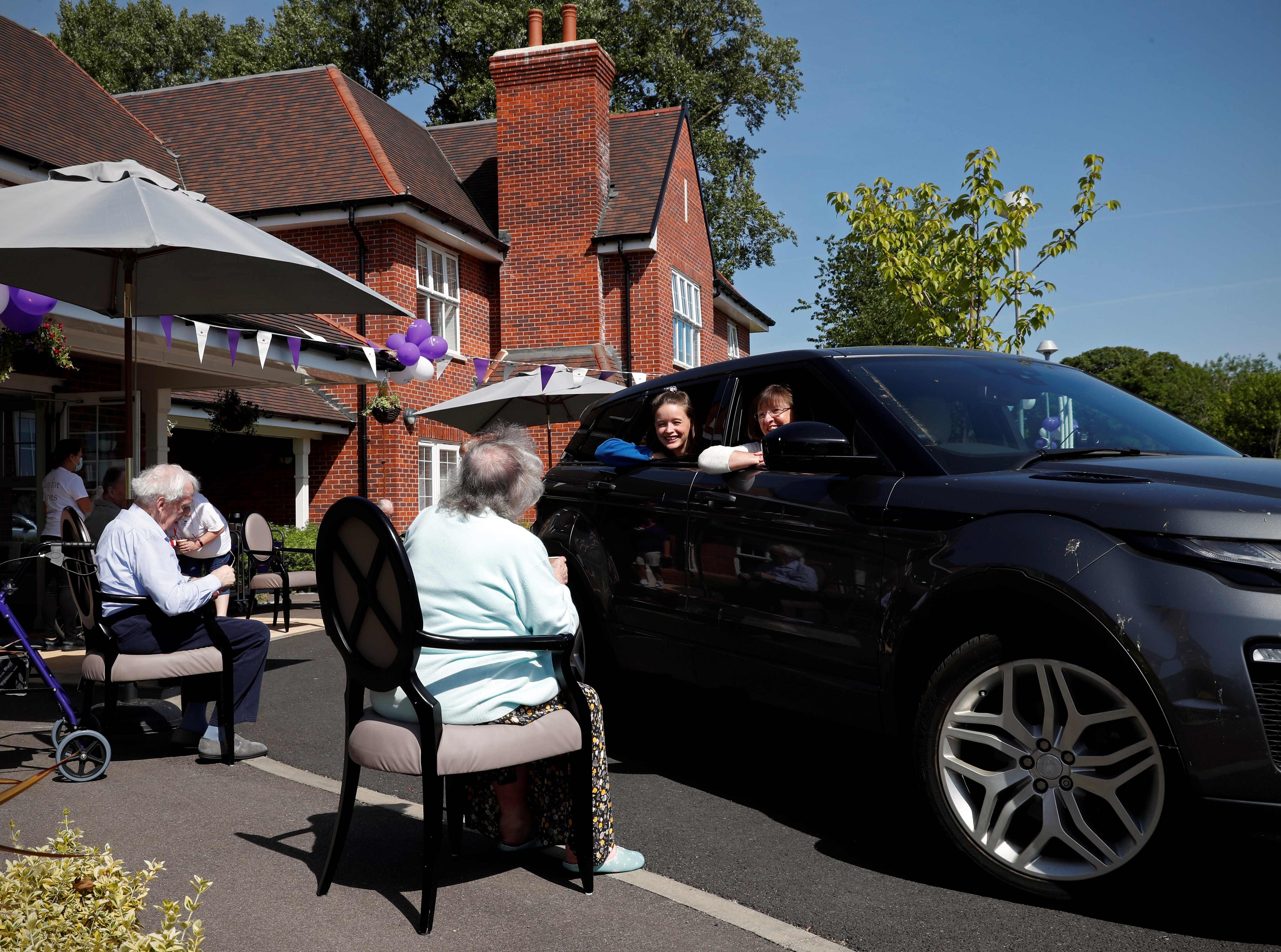Coronavirus: ‘Focused protection’ of elderly not a viable option, say PM’s advisers
Hopes for normal Christmas are ‘wishful thinking’, says expert

Your support helps us to tell the story
From reproductive rights to climate change to Big Tech, The Independent is on the ground when the story is developing. Whether it's investigating the financials of Elon Musk's pro-Trump PAC or producing our latest documentary, 'The A Word', which shines a light on the American women fighting for reproductive rights, we know how important it is to parse out the facts from the messaging.
At such a critical moment in US history, we need reporters on the ground. Your donation allows us to keep sending journalists to speak to both sides of the story.
The Independent is trusted by Americans across the entire political spectrum. And unlike many other quality news outlets, we choose not to lock Americans out of our reporting and analysis with paywalls. We believe quality journalism should be available to everyone, paid for by those who can afford it.
Your support makes all the difference.Boris Johnson has been warned by his scientific advisers that a policy of protecting over-60s from Covid-19 while allowing the rest of society to go back to normal life “would not be viable”.
Proposals for so-called “focused protection” have gathered support since the launch of the Great Barrington Declaration, backed by thousands of scientists, medics and politicians around the world, including in Mr Johnson’s Conservative Party.
But experts in the PM’s Scientific Advisory Group for Emergencies (Sage) found it would not be possible to stop coronavirus spreading from young people to the older population, and that even if this was achieved for a period, a wave of disease among elderly people would be “almost certain” as soon as protections were removed.
The warning emerged as new figures showed that the death rate for coronavirus patients in England was increasing for the first time since the peak of the pandemic.
And a member of Sage said it would be “wishful thinking in the extreme” to believe that UK families can enjoy a normal Christmas this year without “radical action” to rein in the disease.
Cabinet minister Steve Barclay said the government hoped to be in a position where household contact was possible in the festive season, although he warned the situation might not be "be exactly as it would normally".
But Professor John Edmunds - who earlier this week predicted tens of thousands of deaths in the UK’s second coronavirus wave - responded sceptically to the idea.
"The only way that we can have a relatively safe and normal Christmas is if we take radical action now to reduce incidence - at the very least in high incidence areas - and keep the incidence low across the country by implementing a package of measures to reduce social contacts,” he said.
Warrington in Cheshire became the latest town to join England’s toughest tier 3 “very high” restriction level for coronavirus, with Nottinghamshire and West Yorkshire in discussions about making the same move.
Meanwhile, Wales entered a 17-day “firebreak” lockdown, with all but essential businesses closed and residents told to leave home only for essential purposes.
And Scottish first minister Nicola Sturgeon announced a new five-tier system to come into effect north of the border from 2 November, with the toughest restrictions coming close to the total lockdown seen in the spring with the exception that schools would remain open.
The latest official figures showed 20,530 positive tests and 224 deaths across the UK on Friday.
And the Office for National Statistics (ONS) put the age-standardised mortality rate due to Covid-19 at 12.6 per 100,000 people in September, up from 7.2 the month before and the first monthly rise since April.
Separate estimates released by the ONS suggested an average of 35,200 new cases per day in private households in England between 10 and 16 October, up from 27,900 for the previous week.
This means one in 130 people are estimated to have contracted the illness that week.
In better news, the crucial reproduction rate of the virus - known as R - fell from between 1.3 and 1.6 to between 1.2 and 1.4. Any figure over one risks exponential growth in cases, as it means each infected person is passing on the virus to more than one other person.
Of the 39,827 deaths registered in September in England, 1.7 per cent (690) involved coronavirus, and in Wales the figure was 1.3 per cent of the 2,610 deaths (35).
A paper produced by Sage on 15 October and released on Friday comprehensively dismissed calls for a “segmentation” approach to coronavirus, under which those most vulnerable to the disease - largely the over-60s and those with certain underlying medical complaints - would be isolated from the rest of society.
Advocates of segmentation argue that this would prevent economic meltdown by allowing normal social and economic activity to resume, while allowing herd immunity to be established among younger age-groups who are at little risk of serious illness or death from Covid.
But the Sage paper states that such a strategy “would not be viable” because it would “not be possible” to stop the virus crossing into older age-groups in a country with an estimated 1.8 million multi-generational homes.
“To be viable as a strategy, there would need to be complete separation between those over 60 and the rest of the population, as even a small leak would cause many illnesses and death when prevalence is high,” said the Sage paper. “No country has managed to achieve anything like a complete separation.”
Withdrawing 3.4 million over-60s entirely from ordinary life for many months would have a “profound negative effect“ on their mental and physical health, the paper warned
And an uncontrolled epidemic among younger age groups would have “dire effects for the NHS”, even if most of them avoided serious symptoms, and would risk long-term physical harm without any guarantee that they would achieve immunity.
Finally, the paper warned: “Even if high levels of immunity could be achieved within the younger age group, it is almost certain that a further epidemic wave in older people would happen occur once segmentation ended.”




Join our commenting forum
Join thought-provoking conversations, follow other Independent readers and see their replies
Comments